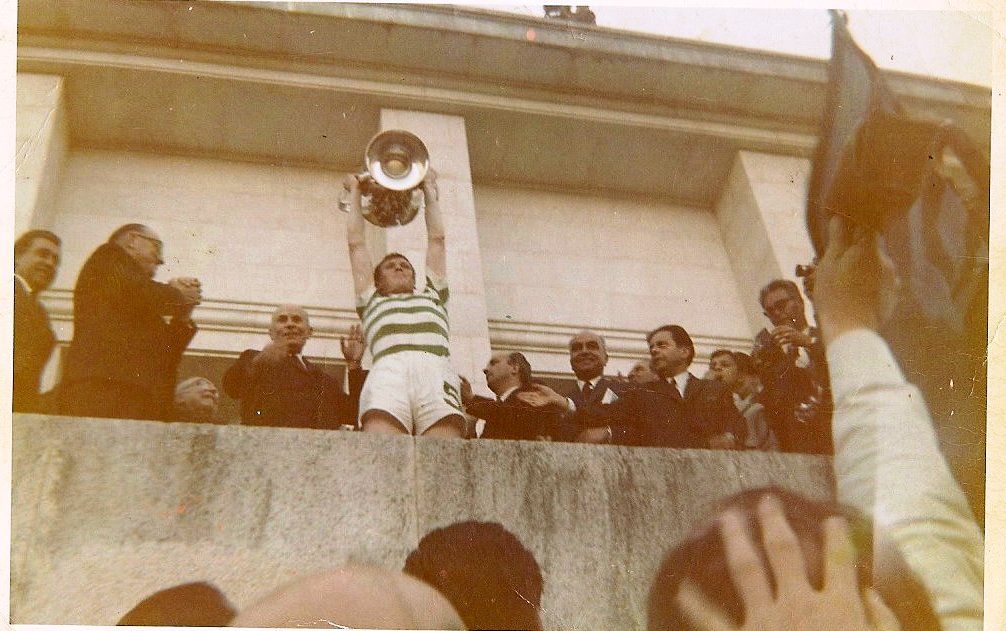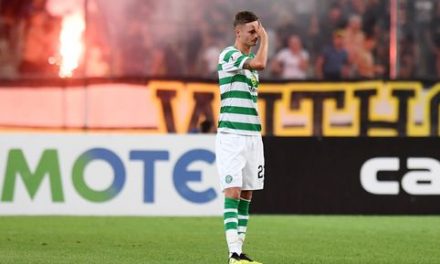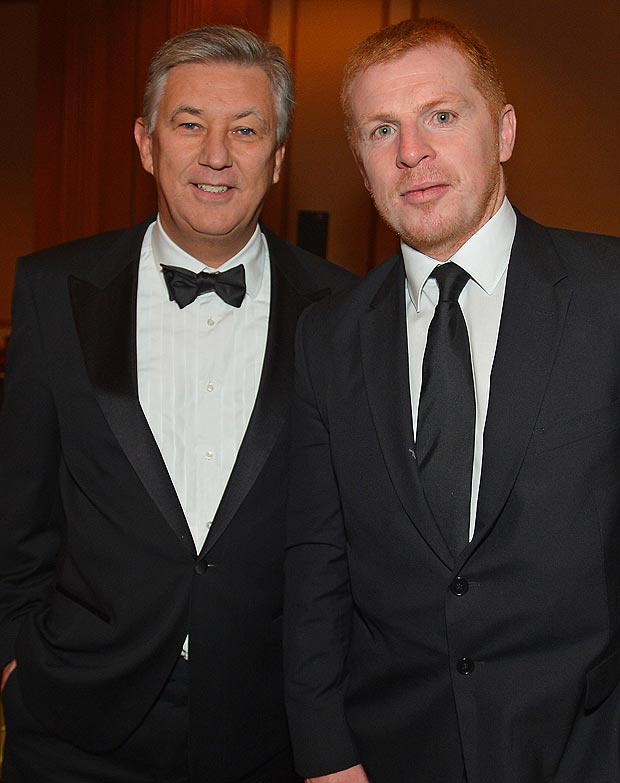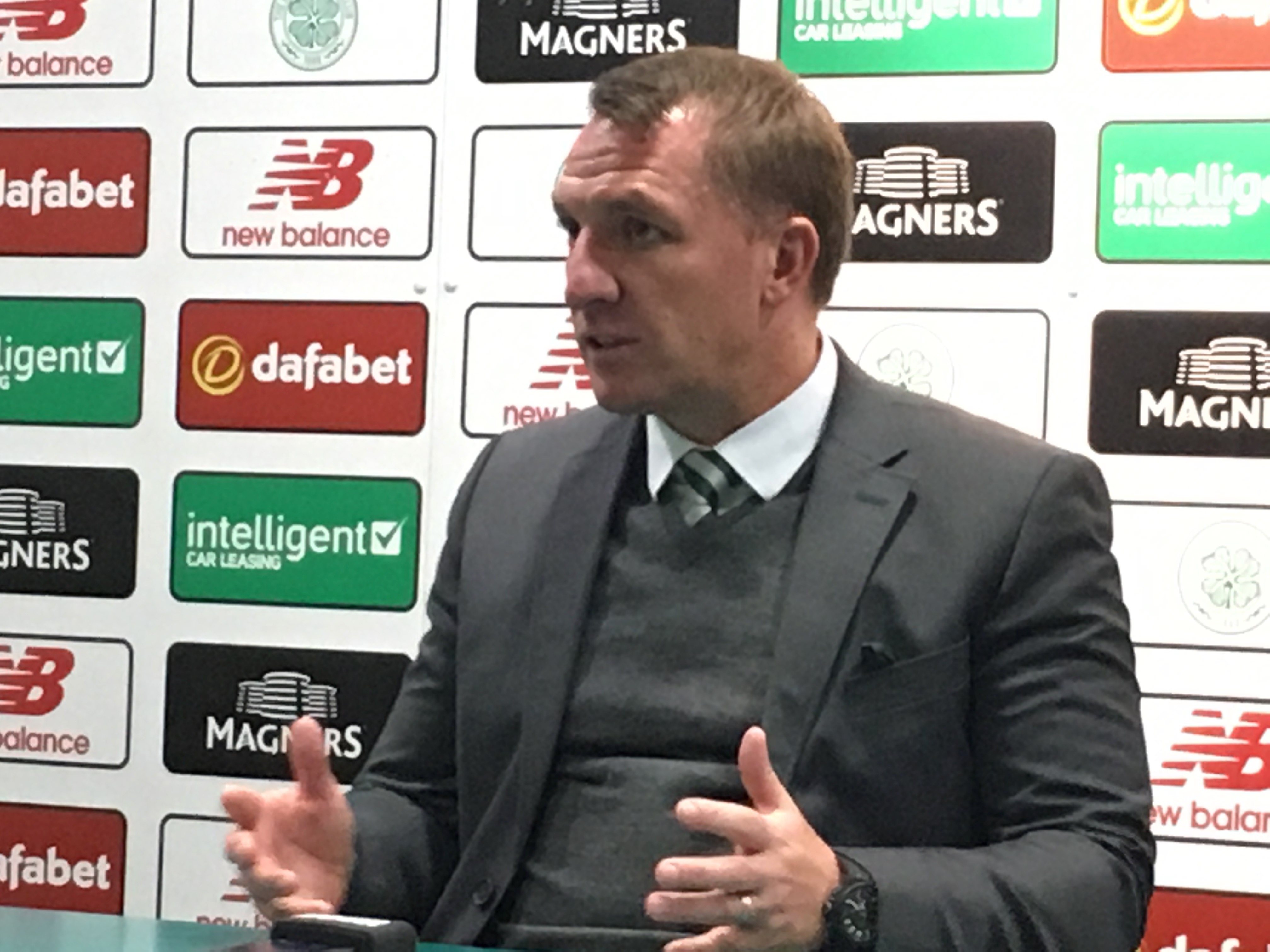Billy McNeill joined Celtic in 1958. A schoolboy internationalist, great things were expected of him and he made his Celtic debut at the tender age of 18 in 1958. The early years at Parkhead were tremendously hard on Billy. The 1961 and 1963 Scottish Cup finals were both lost after replays and those who revelled in Celtic’s misery at that time referred to the team as ‘Billy McNeill and the Easybeats’, a humorous reference to the popular musical tastes from around that period.
By 1965 Celtic were at a low ebb with mediocre performances and dwindling attendances. Billy was coveted by Tottenham and Manchester United who had fantastic sides at that time and many Celtic fans resigned themselves to Billy joining his good pal Pat Crerand at Old Trafford. However, Jock Stein’s arrival as manager in 1965 meant a great turnaround in Celtic’s fortunes and for Billy.
By that time Billy was Celtic captain and in the 1965 Scottish Cup final he was to go down in history. With Celtic and Dunfermline locked at 2-2, there were only minutes remaining when Billy leaped high to head home a Charlie Gallagher corner kick. The barren years were over, eight long trophy less years and the good times were about to start in earnest. The ending to that final was boys’ own stuff which would not have been out of place in a story book.
In 1966 Celtic won their first league title in 12 years which gave them entry into the European Cup for the first time. In the quarter final second leg against Vojvodina, the teams were level at 1-1 on aggregate and due for a third place play off in Rotterdam. In injury time Celtic launched one final assault on the Slav goal and from another Gallagher corner the Celtic captain scored the most dramatic of winners. Parkhead had never witnessed such a dramatic finish to a match and perhaps never will.
Celtic’s momentum took them all the way to Lisbon and the final against Inter Milan. Seldom had any footballer looked more noble and dashing than when Billy when he proudly led out the Celts wearing that classic Celtic strip which will never be bettered. In truth Billy didn’t have a lot to do in Lisbon as Celtic won 2-1 but he was exhausted as he fought his way through the crowds, led by Hugh McIlvanney and John Rafferty, to lift that giant trophy. The Estadio Nacional was a unique setting and Billy looked magnificent as he lifted the trophy high. He had been given the nickname ‘Cesar’ after the film star Cesar Romero but he was also to gain the moniker ‘Caesar’ due to the spectacular Romanesque amphitheatre setting of the stadium. No Roman emperor never looked more majestic in Rome than Billy did in Lisbon.
In the following years Celtic became renowned on the continent for their quality of football. European Cup ties were keenly anticipated and there were memorable wins over the great names of European football from that era, Red Star Belgrade, St Etienne, Benfica and Leeds United. As Ian Archer once said, ‘They (Celtic) trod more new paths than any Scotsmen since David Livingstone left Blantyre.’
The domestic success was astonishing. Billy won 9 leagues, 7 Scottish Cups and 6 League Cups. When the 9-in-a-row run came to an end in 1975 it was actually hard to believe that a Celtic team under Jock and Billy’s leadership could actually lose. In 1975 Billy retired on a high when he captained Celtic to victory over Airdrie at Hampden in the Scottish Cup final. How fitting it was that his Celtic career ended on a high note. As a Celtic captain Billy was always gracious in victory and dignified in defeat. To the Celtic supporters he was the real King Billy.
Billy returned as Celtic manager for two spells from 1978 to 1983 and 1987 to 1991. He was successful on both occasions and will always have the gratitude of fans from my generation for inspiring the Celts to the 4-2 victory over Rangers in 1979 which became the stuff of legend. In 1988 he produced another fine Celtic side to inspire the Celts to a memorable league and cup double. Sadly, both his managerial spells ended acrimoniously, after fall outs with Celtic directors and management staff who will not be named here. It is to the credit of the current Celtic board that they named Billy as a Celtic ambassador in later years to give him the respected role at the club that he very much deserved in his later years.
There are a couple of stories I would like to share. The first one relates to 1967. Shortly before the European Cup final, Billy visited a Celtic fan who was seriously ill in hospital. Sadly, the fan died before the Lisbon final but on the eve of Billy’s biggest day, he took the time to send a postcard of the Estadio Nacional to the bereaved family, saying he hoped to do them proud and bring the cup home. This was a true measure of the man, to think of others first at a time when he had so much to consider. On a personal note, my son was playing in a football tournament in 2013. The boys were only 9 years old and they spotted Billy watching his grandson. I wasn’t even sure they would know who he was (they were not all Celtic fans) although I found out they did. Billy was kind enough to speak to them and the boys were in total awe of him – and so were the fathers.
To us mere fans, Billy McNeill was a Celtic captain, a Celtic manager and a Celtic ambassador. He was a hero to thousands, an inspirational figure and the greatest of Celts. And yet to others he was a husband, a father, a grandfather and a friend. Our thoughts and prayers are with Liz and the extended McNeill family at this hugely difficult time.
May eternal light shine upon Billy McNeill and may he rest in peace. Amen.
Thanks for everything Big man.




